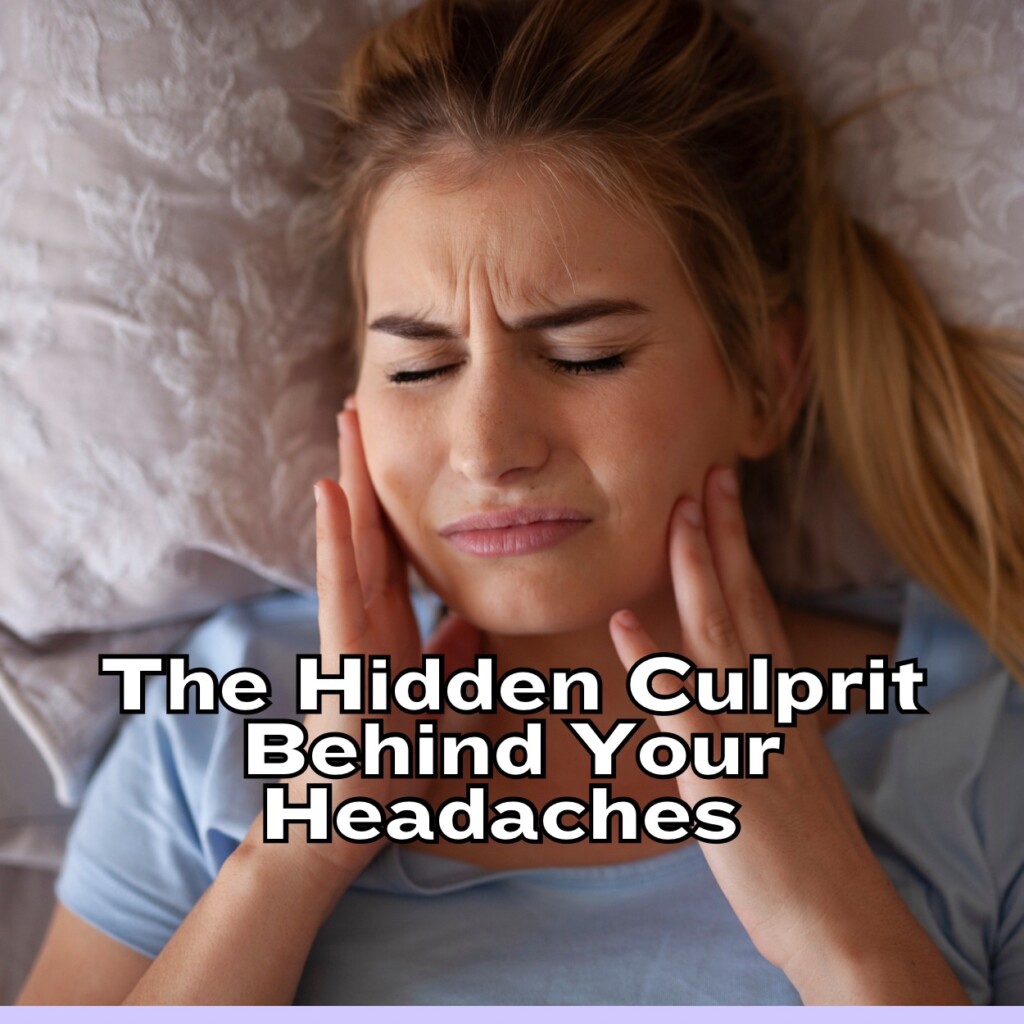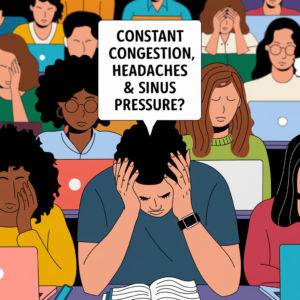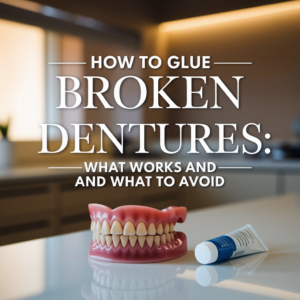The Unseen Strain of Nighttime Habits
Many of us go to bed hoping for a restful night’s sleep, only to wake up with a headache or facial pain. While various factors could be at play, one often-overlooked culprit is jaw clenching and teeth grinding, also known as bruxism. This unconscious act can lead to a host of problems, some of which extend far beyond your mouth.

The Anatomy of the Jaw
The jaw is a complex structure involving muscles, tendons, and joints. When you clench your jaw or grind your teeth, you’re putting strain on the temporomandibular joint (TMJ), which can lead to TMJ disorders. These disorders can cause pain not only in the jaw but also in the form of headaches, earaches, and even neck pain.
The Ripple Effect: Headaches and Beyond
The act of clenching your jaw or grinding your teeth can lead to tension headaches. These headaches often feel like a tight band around your forehead and can be accompanied by facial pain. Over time, this tension can even lead to migraines, which are more severe and longer-lasting than typical headaches.
Other Health Implications
- Dental Damage: Over time, grinding can wear down the enamel on your teeth, leading to increased sensitivity and a higher risk of cavities.
- Sleep Disruption: The act of grinding can interrupt your sleep cycle, leading to sleep deprivation, which comes with its own set of health problems like decreased immune function and poor concentration.
Diagnosis and Treatment
If you suspect that jaw clenching or teeth grinding is affecting your health, it’s crucial to consult with a healthcare provider for a proper diagnosis. Treatments can range from wearing a mouthguard at night to medications that help relax the jaw muscles. In some cases, cognitive behavioral therapy (CBT) is recommended to address the stress that often accompanies bruxism.
Prevention is Better Than Cure
Lifestyle changes such as reducing stress through exercise or meditation can help alleviate the symptoms. Limiting caffeine and alcohol, which can increase the likelihood of grinding, can also make a difference.
In Summary
Jaw clenching and teeth grinding may seem like minor issues, but they can lead to significant health problems if not addressed. If you’re experiencing symptoms like headaches, facial pain, or sleep disruption, consider consulting a healthcare provider for diagnosis and treatment options.
Self-Help Solutions and Products to Consider
While professional medical advice is crucial for diagnosing and treating bruxism and its related symptoms, there are also products and methods you can try at home to alleviate discomfort and prevent further damage.
Over-the-Counter Mouthguards
One of the most straightforward solutions is an over-the-counter mouthguard. These dental protectors can provide a barrier between your upper and lower teeth, reducing the impact of grinding or clenching. They come in various styles and materials, so you may need to try a few to find the one that’s most comfortable for you.
Custom-Fitted Mouthguards
For a more tailored fit, you might consider getting a custom-fitted mouthguard from your dentist. While more expensive than over-the-counter options, these are designed to fit your teeth perfectly, offering better protection and comfort.
Anti-Grinding Dental Cushions
These are small, disposable cushions that you place over your teeth before sleeping. They’re less durable than mouthguards but can be a good temporary solution for occasional grinders.
Biofeedback Devices
Some people have found success using biofeedback devices that alert you when you’re clenching or grinding your teeth. These devices can be worn as a headband or wristband and vibrate or beep to make you aware of your harmful behavior, allowing you to stop it consciously.
Stress-Reduction Techniques
Since stress is a significant factor in teeth grinding, methods that reduce stress can also help alleviate bruxism. These can include:
- Yoga and Meditation: These practices can help you become aware of the tension in your body, including your jaw, and teach you how to release it.
- Deep Breathing Exercises: Simple deep breathing techniques can help relax your jaw muscles and may be particularly useful right before sleep.
Topical Treatments
Applying a warm compress to the jaw area can help relax the muscles and alleviate pain. Some people also find relief by using topical pain relievers specifically designed for muscle and joint pain.
Dietary Changes
Reducing intake of stimulants like caffeine and alcohol can help some people reduce incidents of teeth grinding. A balanced diet rich in magnesium can also support muscle and nerve function, potentially reducing grinding.
While these self-help solutions can provide some relief, it’s essential to consult a healthcare provider for a comprehensive treatment plan tailored to your needs. Combining professional medical advice with at-home remedies can offer a more holistic approach to treating bruxism and its associated symptoms.
As an Amazon Associate we earn from qualifying purchases through some links in our articles.




